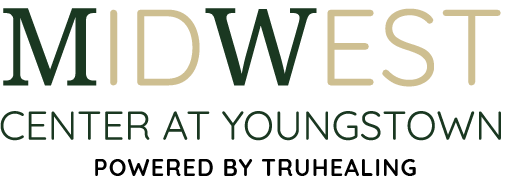When a family member is showing signs of addiction, you may not know where to turn. Many people are hesitant to confront their family members who are struggling with drug or alcohol addiction out of fear that the person will get embarrassed, angry, or even violent. However, if the addiction continues, it can lead to worsening consequences. You do not have to tackle your family member’s addiction on your own. There are many resources available specifically for families, and they can help you get through it all.
At Midwest Center at Youngstown, we understand how difficult it can be to speak to a loved one about their addiction. We are here to help walk you through the process of speaking with your family member and encouraging them to get treatment. Call us today at 844.544.0502 to learn more about how our addiction treatment centers in Ohio can help your family member take their life back from addiction.
How to Talk to a Family Member With Addiction
Talking to an addicted family member about their drug or alcohol problem is not easy. Some common reactions when a person is confronted about their addiction are denial, defensiveness, and anger. In some cases, a person may become enraged and violent, especially if they are under the influence when confronted. The way you talk to your family member with addiction is crucial. This can make all the difference in them being open to getting help. Here are some tips to help you plan for your talk:
- Learn about the signs of addiction, long-term effects, and the treatments available so that you can share information with your loved one.
- Think about several ways your family member’s addiction has negatively impacted you, themselves, and others around them. Providing specific examples can help them see the damage their addiction has caused.
- Only speak to the person about their addiction when neither of you is under the influence. Your family member must be coherent when you speak with them about addiction. This can also decrease the risk of a violent reaction.
- Begin your conversation by letting the person know you care about them. Tell them about the concerning behaviors you have noticed and how you are worried about the long-term effects if they continue.
- Avoid being confrontational or judgmental. Your main goal is to express concern for your family member’s well-being.
- Be a good listener. Do not be uncomfortable with silence. Those long silences may give the person a chance to open up to you about their problem.
How to Get Help for Your Addicted Family Member
It is best to prepare yourself ahead of time in case your family member seems to be considering treatment. This can help keep the positive momentum going, so they are more likely to follow through.
- Offer to support them throughout treatment. Many addiction treatment centers provide family counseling and visitation, and your commitment to the process can be a game-changer.
- Share information about local treatment centers. Point out features that may appeal to the person, whether it be the proximity to their home, beautiful facilities, desirable amenities, or insurance coverage. Show them that addiction treatment centers can provide a comfortable, welcoming atmosphere to allay their fears of outdated, stereotypical rehabs.
- Make the process easy for them to help deter any excuses for putting off treatment. You can offer to make the phone call and drive them to their intake appointment.
Midwest Center at Youngstown: Treating Addiction and Helping Families Heal
At Midwest Center at Youngstown, we pride ourselves on treating addiction with a comprehensive approach that greatly increases the chances of full and lasting recovery. Our family therapy programs are one of the highlights of our addiction treatment in Ohio as we realize the importance of involving loved ones in the recovery process. Call us today at 844.544.0502 to learn more about our wide range of treatment options that can help your family member get clean for good.

